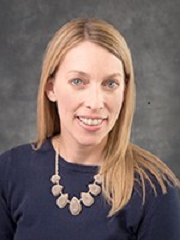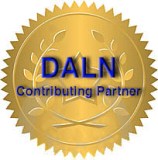Interview with Dr. Christine Tulley about How Writing Faculty Write

Interview with Dr. Christine Tulley
Dr. Christine Tulley is a Professor of English, and Director of the Masters in Rhetoric and Writing Program and The Center for Teaching Excellence Faculty Liaison at The University of Findlay. She is also an alumna of the Rhetoric and Writing PhD program at Bowling Green State University. Dr. Tulley's book How Writing Faculty Write was published by the University Press of Colorado & Utah State University Press in 2018; Dr. Tulley graciously agreed to an interview about How Writing Faculty Write and what she is working on now.
What were the main questions and points of interest that led to How Writing Faculty Write?
I talk about this in the Preface, but I’m enchanted with the “Writers at Work” interviews from The Paris Review. These are the interviews with high profile novelists, essayists, and poets about how they put texts together. I’ve been reading these for a long time and I knew I wanted to ask the same types of questions from the superstars in our own discipline. As rhetoric and composition faculty, we talk about writing all the time but rarely our own.
How did you approach the writing process for How Writing Faculty Write?
After completing the interviews, I coded them to find similar themes and developed the introduction and conclusion from those. As far as the actual writing goes, I have the same habits I’ve had since I was a MA student at Cleveland State. I work ten hours a week and not on weekends. I try to write for two hours in the morning from 9-11 am in the library and then the rest of the day belongs to everyone else. When I taught morning classes, I reset my day at 1 pm and wrote from 1-3 pm. I’ve found from my interviews that this is far from the norm, but it works for me. I also started playing the guitar a few years ago and I tend to play and write every day. Both tasks feed into each other.
I did a funny interview about being a library nerd and playing guitar for Rhetoricity if anyone wants to hear more about the writing process for HWFW.
What impact have you seen the book have on audiences so far?
I know the book is in a second print run and has been selling very well. I’m currently working with a group of doctoral students in rhet comp at Ohio State to see how they use this advice as they write their dissertations and plan for academic careers. Most are job-hunting right now. I also gave the keynote to the Peck Research on Writing Symposium at Middle Tennessee State University in April. In September, I was invited by the University of Leeds to talk about strong writing habits to faculty in the UK.
What do you hope readers take from the text?
I actually hope they take the text as an engaging read. The interviews are great conversations with field leaders and these folks are very candid about the pleasures and difficulties of writing.
How have you continued discussions started by the book, and where do you see those conversations going in the future?
I’m finding many scholars in the field want to stop me and talk to me about their writing – projects that are going well, writer’s block, etc. No one ever asks them and they know I care, so I’m hearing a lot about writing within our discipline. I am hearing a lot from faculty who are very excited about what they are writing and what has happened to their writing once they’ve finally found the right project; the project they really wanted to do. That’s actually going to be the focus of my third book titled Passion Projects. This book focuses on what happens to the writing process when you fall in love with a writing project.
What is your next project?
The current project I am completing is a book titled Rhet Comp Moms: Parenting, Publication, and Professionalism. This book is a culmination about 75 time use diaries of mothers in rhetoric and composition. I got interested in the project because I have two children but at the same time I love, my career and both areas demand a lot of time. I know other women in my position and I was curious to find out how they were also finding the time to have both an identity as a mother and as a scholar.
I also became a research partner with Prolifko, a writing productivity group, in the UK. We just put out an international survey to academics about writing habits and this research will probably feed into my Passion Projects book.
Updated: 11/24/2025 02:42PM

